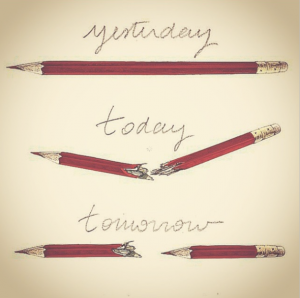French chanteuse Edith Piaf singing the French national anthem, La Marseillaise, which is a call to arms against oppression
Let us honor those who fight and sometimes die for the causes of free speech and a free press.
Much of what French satirical magazine Charlie Hebdo publishes has been offensive to nearly everyone at one time or another; the quality or appeal or substance of their satire is not the point. The point is that an open marketplace of ideas is necessary for a free society. That includes the right of individuals to share ugly or objectionable ideas, the responsibility of governments to safeguard that right, and the responsibility of citizens to stand up for it.
In an open society, bad ideas get countered, challenged and, over time, often discarded, not despite but because of their publication. It is only when they are shared that enough people can speak for or against them and the general public can make informed decisions. When this right to free speech is attacked anywhere in the world, we are all diminished.
I do not seek to smear or harm those who happen to share the same faith as the terrorists who engaged in the brutal slaughter at Charlie Hebdo—that would be as nonsensical as the evil acts of the assassins. Remember that one of the two policemen killed by the assassins when they rushed to the site of the attack was Muslim police officer Ahmed Merabet, who was murdered while protecting the right of Charlie Hebdo to caricature and mock his own religion. No, this was a brutal act committed by a small group of sick-minded individuals, not by a religion.
The rallying cry around the world and among popular commentators like The Daily Show‘s Jon Stewart in the immediate aftermath of the attack has been Je suis Charlie: I am Charlie. In his essay in The New Yorker, Philip Gourevitch responds to this by writing, “But the truth is—for better and for worse—that, no, most of us, even in the most free of Western societies, are not Charlie. For better, because so many of us have the luxury of often feeling secure enough in our freedom to take it for granted. For worse, because in taking our freedom for granted, we are too often ready to trade it for a greater sense of security. We are not Charlie, in other words, because we risk so little for what we claim to value so much. We are not Charlie, too, because most of us are relatively inoffensive, whereas Charlie, like so many liberating pioneers of free expression—think not only of Lenny Bruce and Mad magazine but also of Gandhi and Martin Luther King—were always glad to give offense to what offended them. And we are not Charlie, today, because we are alive.”
It is true that we in the United States have many luxuries of expression that others around the world are denied, and that we regularly take them for granted. We forget that what we consider to be inherent and inalienable rights are seen as privileges at best in many places around the world. So it is incumbent upon us to show gratitude and recognition for our freedom, and to stand up for the right of others around the world to be offensive, outspoken, embarrassing or upsetting in what they say or publish, as long as they do not present a clear and present immediate physical danger to others while they do so (as would be the case if a speaker instigated a riot, or example). I do not seek to upset others and generally do my best to avoid offending with my writing, but I stand behind those who exercise their right to upset, disgust or enrage others (myself included) when they speak their minds, even in cases when I detest what they have to say. Let us remember those who face danger in their fight for the right to a free press. Let us prove with nonviolent but outspoken solidarity that, truly, nous sommes tous Charlie: we are all Charlie.
Above: London-based graphic designer Lucille Clerc’s response to the Charlie Hebdo murders, widely misattributed to Banksy

